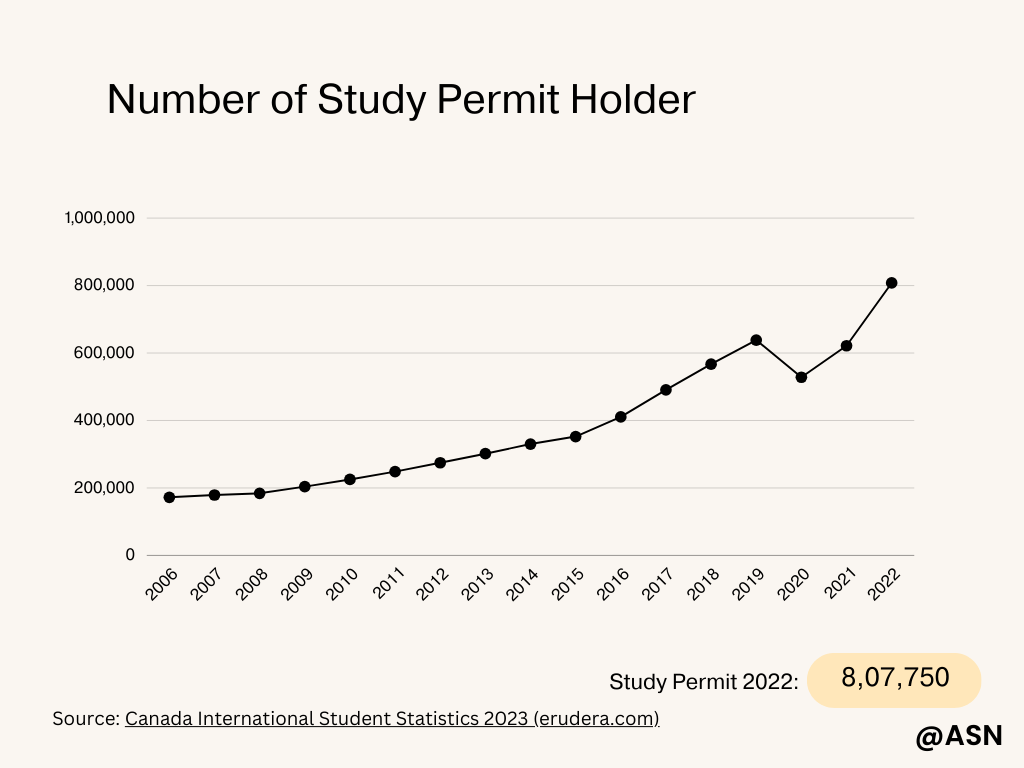The Canadian government’s recent change in immigration policies, aimed at addressing challenges related to housing, jobs, and healthcare due to the increasing number of international students, includes a two-year cap on international student permit applications. This decision, effective from 2024, will result in a 35% reduction (from 2023 levels) in issuing international student permits, amounting to 360,000.
The impact of this policy change is expected to affect Canadian universities significantly. With a considerable portion of their revenue generated from international students, some universities are responding by closing academic programs to mitigate the financial implications. The tuition fee gap between international and domestic students has widened over the years, with international undergraduate students paying 428.6% more in 2022 compared to 2006, and international graduate students paying 183.8% more.
The significance of international student revenue is highlighted by Statistics Canada, reporting that one-third of the total revenue for Canadian universities comes from international students. In 2022, the average annual tuition cost for international undergraduate students is $36,100, and for international graduate students, is $21,100.
International students have rapidly increased over the past 16 years, growing by 368.69% from 172,340 in 2006 to 807,750. While this growth has positively impacted the revenue of Canadian educational institutions, the new immigration policy is anticipated to have a potentially devastating effect on these communities in the coming days.
References:
Erudera. (2023). Canada International Student Statistics 2023. Retrieved from https://www.erudera.com/canada-international-student-statistics-2023/
Statistics Canada. (2022). The Daily — Tuition fees for degree programs, 2022/2023. Retrieved from https://www150.statcan.gc.ca/n1/daily-quotidien/220914/dq220914a-eng.htm





